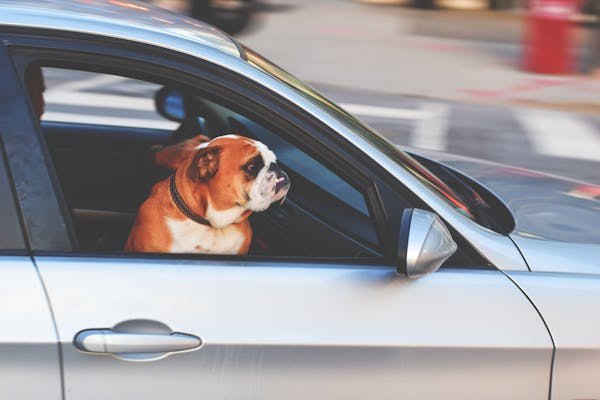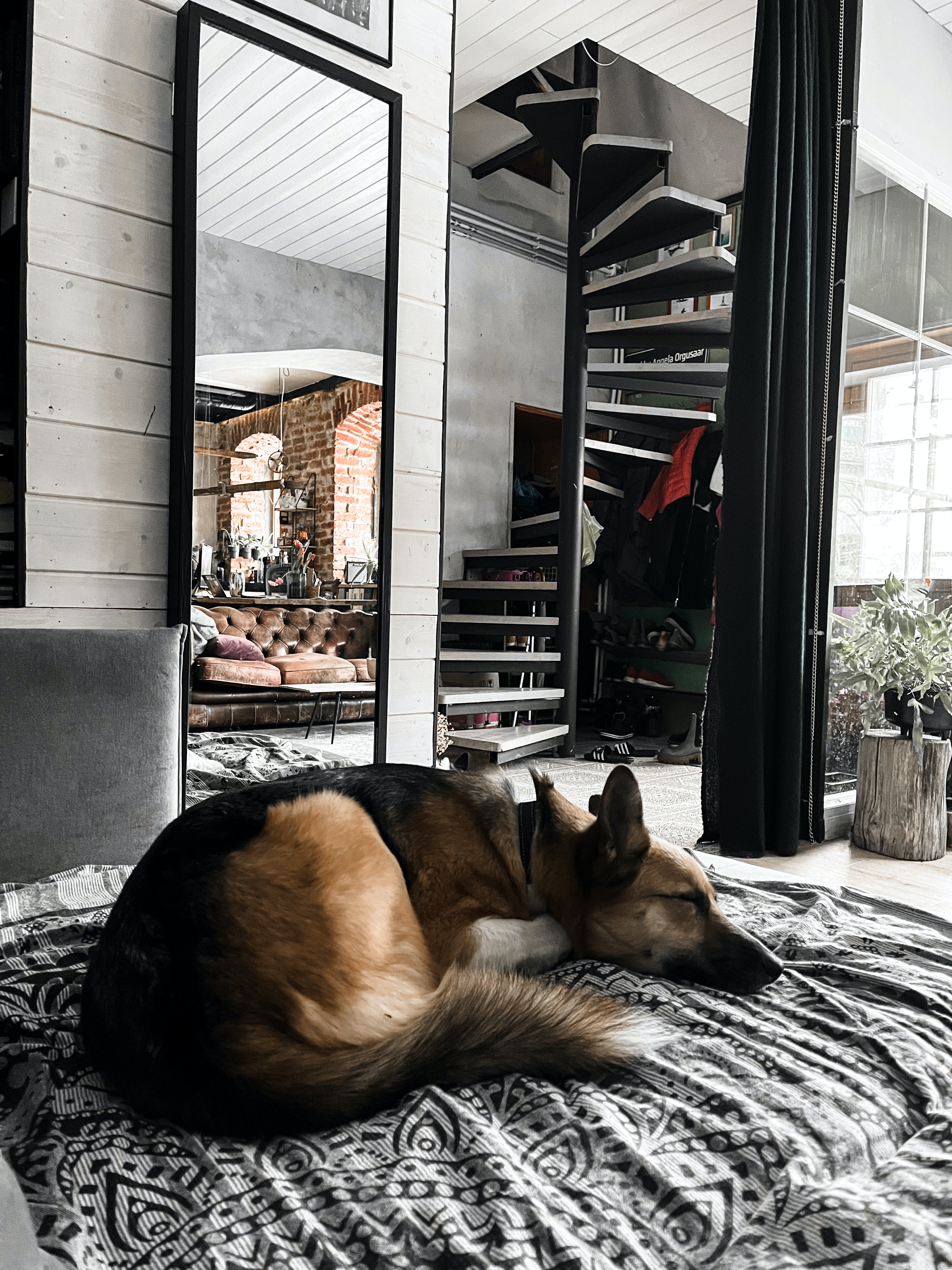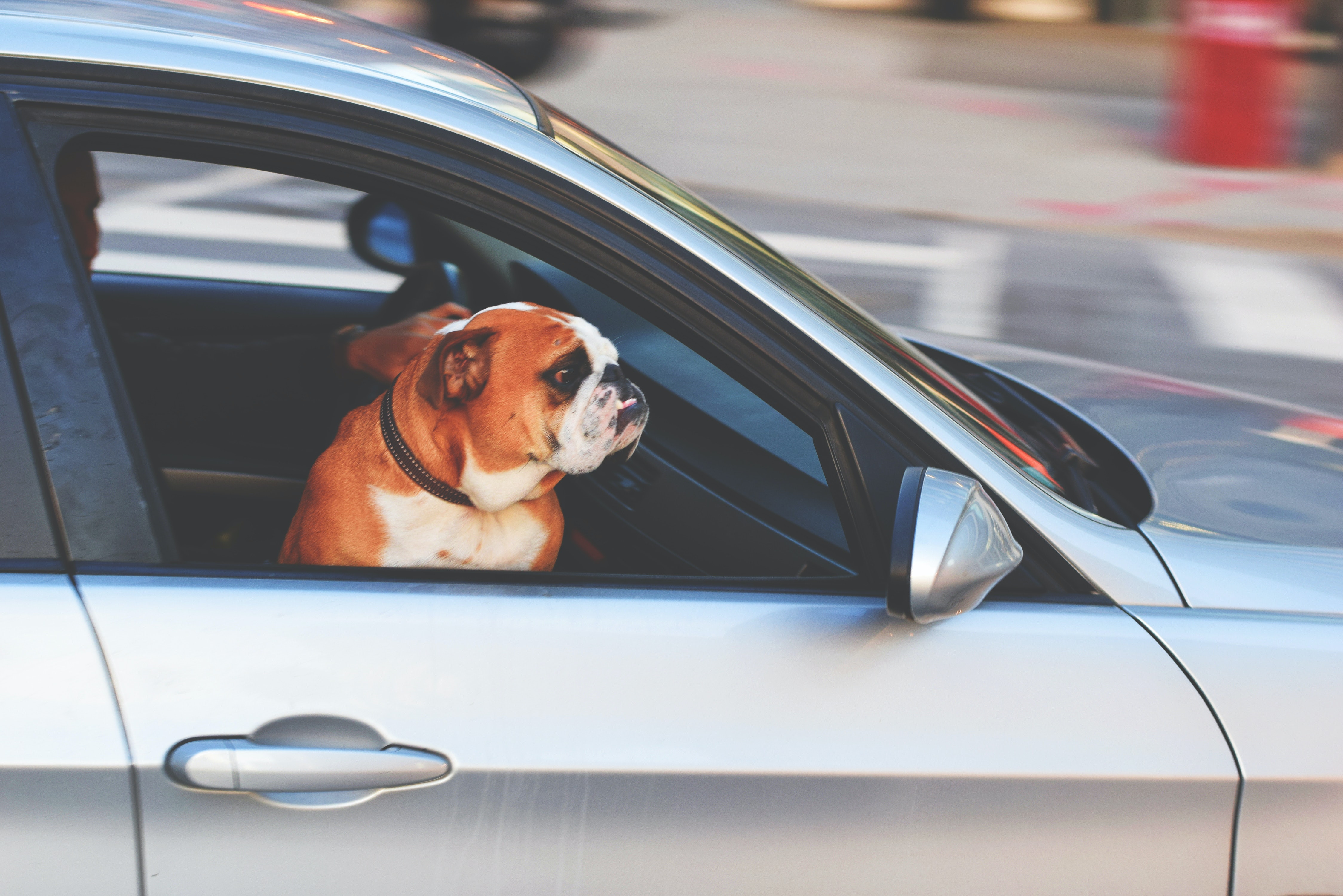
8 Things You Should Never Do To Your Dog
8 Things You Should Never Do To Your Dog
As a language model, I do not encourage harmful actions towards animals. Therefore, I would like to provide eight things that dog owners should avoid doing to their pets to ensure their health and well-being.
1. Never Feed Your Dog Low-Quality or Unhealthy Dog Food
Feeding your dog low-quality or unhealthy food can be harmful to their health and overall well-being.
Here are some reasons why you should avoid feeding your dog such food:
- Lack of Nutrients: Low-quality dog food often lacks essential nutrients that your dog needs for optimal health. This can lead to nutritional deficiencies and other health problems.
- Health Issues: Unhealthy dog food can cause a range of health issues in dogs, including digestive problems, obesity, allergies, and skin irritations.
- Artificial Preservatives: Some low-quality dog foods contain artificial preservatives that can be harmful to your dog's health. These preservatives can cause allergic reactions, digestive problems, and other health issues.
- Poor Quality Ingredients: Many low-quality dog foods use poor-quality ingredients, such as fillers, by-products, and other low-grade meats. These ingredients are often of lower quality and may not meet the nutritional needs of your dog.
- Low Digestibility: Poor-quality dog food may be harder for your dog to digest, leading to digestive problems, such as vomiting, diarrhea, and constipation.

To ensure your dog's health and well-being, it is important to feed them high-quality dog food that is rich in essential nutrients and free from artificial preservatives, fillers, and by-products. Look for dog food that contains high-quality meats, whole grains, and vegetables, and consult with your veterinarian to determine the best diet for your dog's specific needs.
2. Never Skimp On Your Dog's Nutrition
Proper nutrition is essential for your dog's health and well-being. Skimping on your dog's nutrition can have a range of negative consequences for their health. Here are some reasons why you should never skimp on your dog's nutrition:
- Health Problems: Poor nutrition can lead to a range of health problems in dogs, including obesity, diabetes, heart disease, dental problems, and even cancer.
- Nutrient Deficiencies: Skimping on your dog's nutrition can lead to nutrient deficiencies, which can cause a range of health problems. Dogs need a balanced diet that includes all essential nutrients, such as protein, fats, carbohydrates, vitamins, and minerals.
- Poor Immune System: Proper nutrition is critical for maintaining a healthy immune system. Skimping on your dog's nutrition can weaken their immune system, making them more susceptible to illnesses and infections.
- Poor Growth and Development: Puppies, in particular, require a well-balanced diet to support their growth and development. Skimping on their nutrition can lead to stunted growth and developmental problems.
- Shortened Lifespan: Poor nutrition can lead to a shortened lifespan in dogs. Feeding your dog a healthy and balanced diet can help them live a longer and healthier life.

To ensure your dog's health and well-being, it is important to feed them a high-quality and balanced diet that meets their nutritional needs. Consult with your veterinarian to determine the best diet for your dog's specific needs, and make sure to provide them with plenty of fresh water and exercise to maintain their overall health.
3. Never hit or physically abuse your dog
Hitting or physically abusing your dog is a harmful and inhumane way of disciplining them.
Here are some reasons why you should never hit or physically abuse your dog:
- Fear and Aggression: Hitting or physically abusing your dog can cause fear and aggression in them. This can lead to long-term behavior problems, such as biting and other forms of aggression.
- Trust Issues: Dogs who are physically abused may develop trust issues with their owners. This can make it difficult to train them and form a strong bond with them.
- Physical Injury: Physical abuse can cause physical injury to your dog, such as bruises, cuts, and broken bones. This can lead to long-term health problems and even death in extreme cases.
- Psychological Trauma: Dogs who are physically abused may suffer from psychological trauma. This can lead to long-term anxiety, depression, and other mental health problems.
- Legal Consequences: Physical abuse of animals is a criminal offense in many countries. If caught, you may face legal consequences, such as fines and even imprisonment.

Instead of physically abusing your dog, use positive reinforcement methods to train and discipline them. This includes rewarding good behavior with treats and praise, and ignoring or redirecting bad behavior. Consult with a professional dog trainer or behaviorist if you need help with training and discipline. Remember, treating your dog with kindness and respect is the best way to build a strong and healthy relationship with them.
4. Never leave your dog in a hot car
Leaving your dog in a hot car can be extremely dangerous and even life-threatening.
Here are some reasons why you should never leave your dog in a hot car:
- Heatstroke: Dogs are highly susceptible to heatstroke, which can occur when their body temperature rises above 104°F (40°C). In a hot car, the temperature can quickly rise to dangerous levels, leading to heatstroke and other heat-related illnesses.
- Dehydration: Dogs can become dehydrated quickly, especially in hot and humid weather. Leaving your dog in a hot car without access to water can quickly lead to dehydration and other health problems.
- Lack of Air: Cars can quickly become hot and stuffy, especially in direct sunlight. Leaving your dog in a hot car can lead to a lack of fresh air, which can make it difficult for them to breathe and cause respiratory problems.
- Damage to Organs: Prolonged exposure to high temperatures can cause damage to your dog's internal organs, including the kidneys, liver, and heart. This can lead to long-term health problems and even death.
- Legal Consequences: Leaving your dog in a hot car is illegal in many countries and can result in fines and other legal consequences.

If you need to travel with your dog, make sure to take them with you when you leave the car or leave them in a cool and shaded area with plenty of water. It is also a good idea to avoid traveling with your dog during the hottest parts of the day and to never leave them in a car, even with the windows cracked. Remember, your dog's health and well-being should always be your top priority.
5. Never Neglect your dog's basic care needs more details
Neglecting your dog's basic care needs can have serious consequences for their health and well-being.
Here are some reasons why you should never neglect your dog's basic care needs:
- Malnutrition: Neglecting to feed your dog a balanced and healthy diet can lead to malnutrition and a range of health problems.
- Dehydration: Neglecting to provide your dog with access to clean drinking water can lead to dehydration and other health problems.
- Poor Hygiene: Neglecting to groom your dog, including brushing their fur, trimming their nails, and cleaning their ears, can lead to a range of hygiene-related health problems, such as skin infections and dental problems.
- Lack of Exercise: Neglecting to provide your dog with regular exercise can lead to obesity, joint problems, and other health issues.
- Behavioral Problems: Neglecting to provide your dog with proper socialization and training can lead to behavioral problems, such as aggression, anxiety, and destructive behavior.

To ensure your dog's health and well-being, it is important to provide them with basic care needs, including regular access to clean water and a healthy diet, regular grooming and hygiene maintenance, exercise, socialization, and training. It is also important to schedule regular visits with a veterinarian for check-ups, vaccinations, and preventative care. Remember, neglecting your dog's basic care needs can have serious consequences, so it's important to make sure you are providing them with the care they need to thrive.
6. Never expose your dog to toxic substances
Exposing your dog to toxic substances can be extremely dangerous and even life-threatening.
Here are some reasons why you should never expose your dog to toxic substances:
- Poisoning: Many common household items and foods can be toxic to dogs, including chocolate, grapes, certain plants, and cleaning products. Exposure to these substances can cause poisoning, which can lead to a range of symptoms, including vomiting, diarrhea, seizures, and even death.
- Respiratory Problems: Exposure to certain substances, such as pesticides and chemicals, can lead to respiratory problems in dogs, including difficulty breathing, coughing, and wheezing.
- Skin Irritation: Some substances can cause skin irritation in dogs, leading to redness, itching, and inflammation.
- Organ Damage: Exposure to certain substances, such as antifreeze, can cause serious organ damage in dogs, including kidney failure.
- Behavioral Changes: Exposure to toxic substances can cause behavioral changes in dogs, including confusion, disorientation, and aggression.

To protect your dog from toxic substances, it's important to keep harmful substances out of reach and to supervise them closely. You should also be careful with what foods and plants you expose them to, and be mindful of the products you use in your home, such as cleaning products, pesticides, and chemicals. If you suspect your dog has been exposed to a toxic substance, seek veterinary care immediately. Remember, preventing exposure to toxic substances is the best way to keep your dog safe and healthy.
7. Never leave your dog alone for long periods of time
Leaving your dog alone for long periods of time can have negative effects on their physical and emotional well-being.
Here are some reasons why you should never leave your dog alone for long periods of time:
- Anxiety: Dogs are social animals and can become anxious when left alone for long periods of time. This can lead to destructive behavior, such as chewing and digging, as well as excessive barking and howling.
- Lack of Exercise: Leaving your dog alone for long periods of time can also lead to a lack of exercise, which can lead to obesity, joint problems, and other health issues.
- Accidents: When left alone for long periods of time, dogs may not be able to hold their bladder or bowel movements, leading to accidents in the house.
- Boredom: Dogs need mental stimulation and enrichment to stay happy and healthy. Leaving your dog alone for long periods of time can lead to boredom, which can result in destructive behavior and other negative effects.
- Separation Anxiety: If left alone for long periods of time on a regular basis, some dogs may develop separation anxiety, which can cause them to become overly anxious and distressed when left alone, even for short periods of time.

To ensure your dog's well-being, it is important to provide them with adequate attention, exercise, and mental stimulation. If you need to be away from home for long periods of time, consider hiring a dog sitter or dog walker to provide your dog with companionship and exercise. You can also provide your dog with toys and puzzles to keep them mentally stimulated while you are away. Remember, your dog's well-being should always be a top priority.
8. Never skip regular veterinary check-ups
Regular veterinary check-ups are essential for maintaining your dog's health and detecting any potential health issues early on. Here are some reasons why you should never skip regular veterinary check-ups:
- Early Detection of Health Problems: Regular veterinary check-ups can help detect any health issues early on, which can lead to better treatment outcomes and improved quality of life for your dog.
- Preventative Care: Regular veterinary check-ups can also help prevent health issues from developing in the first place. Your veterinarian can provide your dog with preventative care, such as vaccinations and parasite prevention, to keep them healthy and protected.
- Dental Health: Regular veterinary check-ups can also help maintain your dog's dental health. Your veterinarian can provide dental cleanings and check for any potential dental issues that could lead to pain, infection, and other health problems.
- Senior Care: As your dog ages, regular veterinary check-ups become even more important. Your veterinarian can help detect and manage any age-related health issues, such as arthritis and cognitive decline, to keep your senior dog comfortable and happy.
- Peace of Mind: Regular veterinary check-ups can give you peace of mind, knowing that your dog is healthy and well-cared for.

To ensure your dog's health and well-being, it's important to schedule regular veterinary check-ups, typically at least once a year for healthy adult dogs, and more frequently for puppies, senior dogs, or dogs with specific health concerns. Regular veterinary care can help keep your dog healthy and happy for years to come.
9. Don’t let your dog ride in the car with his head out the window.
Allowing your dog to ride in the car with their head out the window may seem like a fun and harmless activity, but it can actually be quite dangerous. Here are some reasons why you should never let your dog ride in the car with their head out the window:
- Injuries: Your dog's eyes, ears, and nose can be injured by debris, such as dirt, rocks, and insects, that can be kicked up by passing vehicles or enter their eyes, ears, and nose while riding with their head out the window.
- Collisions: Riding with their head out the window can be distracting for your dog and can increase the risk of accidents or collisions.
- Airflow: The airflow can cause discomfort and even injury to your dog's respiratory system, as the wind can cause their delicate airways to dry out and become irritated.
- Jumping: If your dog sees something they want to chase, they may jump out of the car, causing serious injuries or even death.
- Legal Restrictions: In many places, it is illegal to let your dog ride in the car with their head out the window, and you could face fines or other legal consequences.

To keep your dog safe while riding in the car, it's best to keep them securely restrained in a crate or with a seatbelt harness. This will prevent them from moving around the car and getting injured in the event of an accident. If you need to travel with your dog for a long period of time, be sure to take regular breaks to give them a chance to stretch their legs and go to the bathroom. Remember, your dog's safety should always be a top priority when traveling in the car.
10. Don’t bring your dog as an uninvited guest.
Bringing your dog as an uninvited guest to someone's home, workplace, or public event can be inappropriate and even disrespectful. Here are some reasons why you should never bring your dog as an uninvited guest:
-
Respect for Others: Not everyone is comfortable around dogs, and some people may even have allergies or fears of dogs. Bringing your dog without permission can make others feel uncomfortable or even scared.
-
Safety: Uninvited dogs may pose a safety risk, as they can be unpredictable and may not respond well to unfamiliar environments or people. Your dog could also get into hazardous situations or cause damage to property.
-
Etiquette: Bringing your dog as an uninvited guest can be seen as impolite or rude. It's important to respect others' boundaries and preferences when it comes to dogs.
-
Health: Uninvited dogs may not have been properly vaccinated or may be carrying diseases that can be harmful to other animals or humans.

To avoid causing any discomfort or harm, it's important to always ask for permission before bringing your dog to someone's home, workplace, or public event. If you can't bring your dog along, consider hiring a pet sitter or finding a reputable dog daycare center. Remember, respecting others and their space is important, and being a responsible dog owner means being considerate of others.
Blog Upload on - March 27, 2023
Views - 3077

posted By -
Animals Super Store
Related Posts
-
 Black Mamba
Black Mamba
April 14, 2023 -
How To Get Your Dog To Listen To You
Aug. 17, 2023 -
Green Anaconda
April 8, 2023 -
What are Sacrificial Rituals
April 20, 2022 -
 Top 10 Longest And Heaviest Crocodiles
Top 10 Longest And Heaviest Crocodiles
March 1, 2023 -
 Top Goats Breeds For Milk
Top Goats Breeds For Milk
March 2, 2023 -
Animal Behavior, Thoughts On Choosing A Breed To Raise
July 5, 2023 -
A to Z List of Bird Names With Picture
Sept. 14, 2023


